Raising Ducks and Chickens Together
There are several benefits of keeping a variety of fowl on the homestead. Aside from the obvious – receiving farm fresh eggs daily. But what about raising ducks and chickens together?
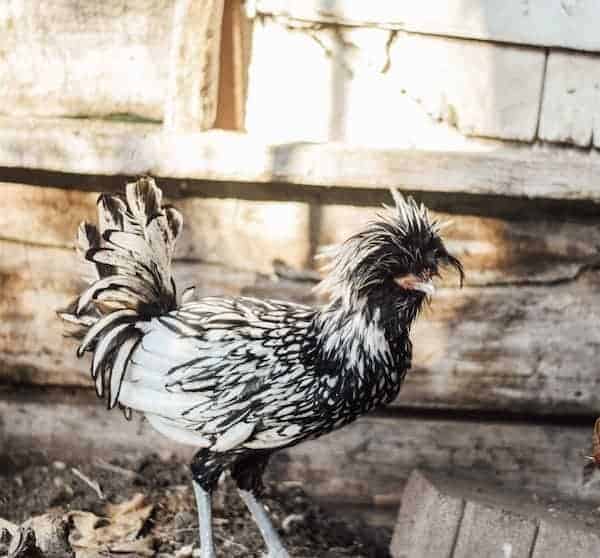
Benefits of Raising Ducks and Chickens Together
As we have been growing our homestead a little over time, we have discovered many benefits with the animals that we have around here.
Some are new to us of as this year and we are still learning, but it’s been a great adventure thus far.
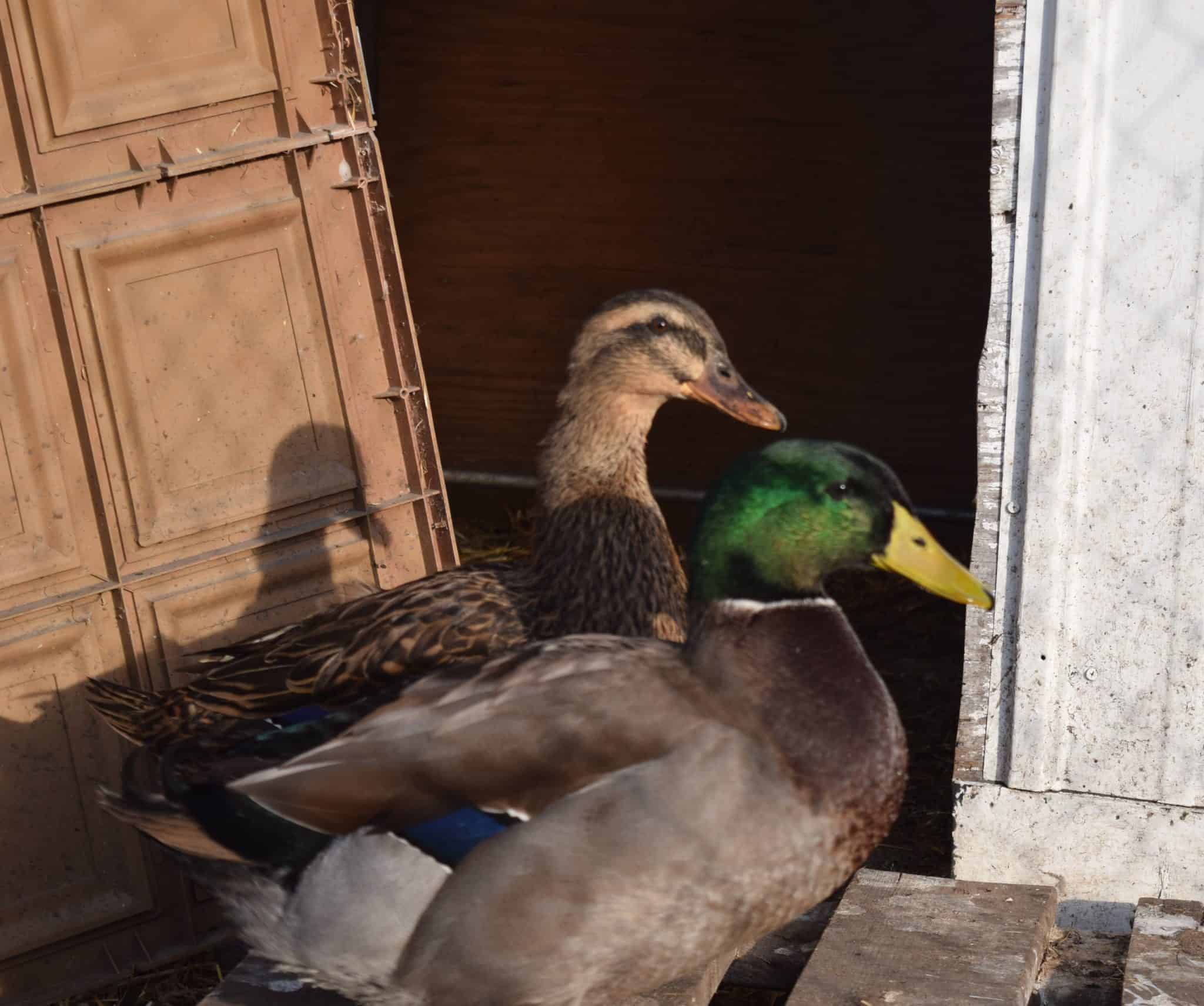
We started out with chickens, then we picked up pregnant nanny goats. Next, we added guinea fowl and most recently we have added ducks. I have a few more on my dream list, so stay tuned as we build and grow a little over time.
I’ve recently shared the Benefits of a Goat Browser and 10 Reasons Why Goats Are Awesome. Check them out if you haven’t read them already!
Today I’m going to share just a few of the benefits of the various breeds of fowl that we currently have.
Chickens:
#1 Most breeds are super sweet. I just love going out to the coop and having our chickens greet me for the day.
#2 Chickens are great pets for children.
#3 They are easy for younger children to learn farm chores. My toddlers help with feeding, watering and collecting eggs.
#4 If you free range, they will help with bug control. Just know that they will probably eat your garden, so you may want to keep that chicken proofed.
#5 Once you’re done with the garden season, they can help scratch up your garden in preparation for next year.
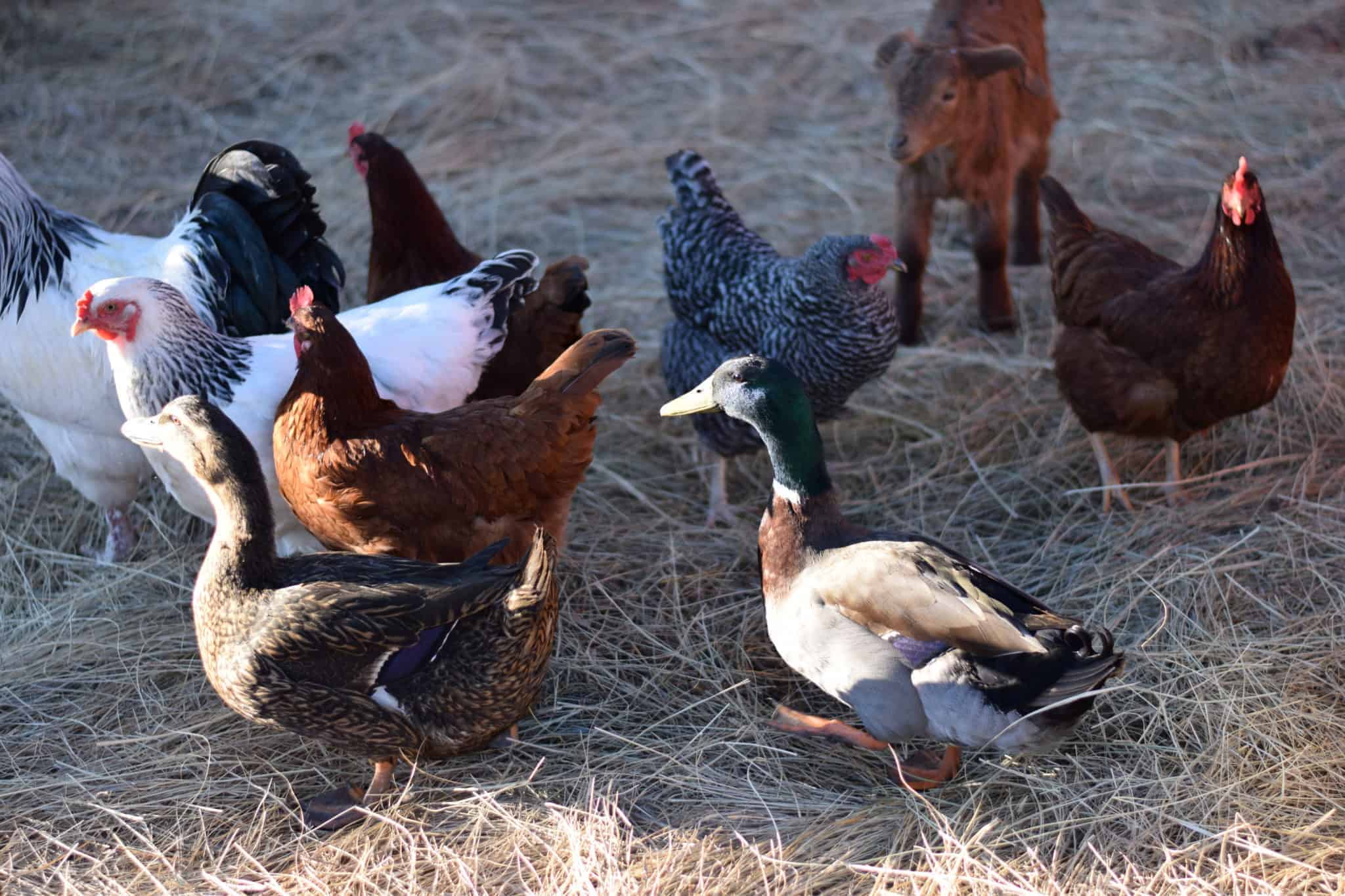
Ducks:
#1 They lay larger and better quality eggs than chickens. At least we think so!
#2 Most duck breeds can lay pretty much year round, but not all do. One breed which we’ve had success with are the Khaki Campbells.
Want to save this?
#3 If you free range, ducks are generally less destructive as far as tearing up your garden goes. Chickens will scratch and peck at all of your veggies and plants. Ducks will make messes if puddles are present, so beware of that.
#4 If you live in a colder climate or have regular seasons, many ducks are cold hardy. If you make a few adjustments, such as providing them with occasional treats, more protein in their diet to “fatten” them up and insulate their shelter, they will be ready for winter.
#5 Duck eggs can sell between $5 or more per dozen and can become quite profitable if that is your goal and you live in the right area.

Guineas:
#1 They are quirky. All fowl are entertaining; guineas are super quirky, weird little birds, but are much fun to watch.
#2 Guineas are pretty low maintenance. Depending on your area, guinea fowl can be allowed much more freedom than most other fowl.
#3 These birds make a lot of noise and especially when they suspect danger, so they make great warnings for approaching predators or if someone is approaching your home.
#4 Like other fowl, they will eat bugs, but they won’t destroy your garden or lawn while doing so.
#5 Although guinea hens will lay eggs, they will be smaller in size – similar to that of bantam chickens. But note that if they free range, the eggs may be difficult to find!
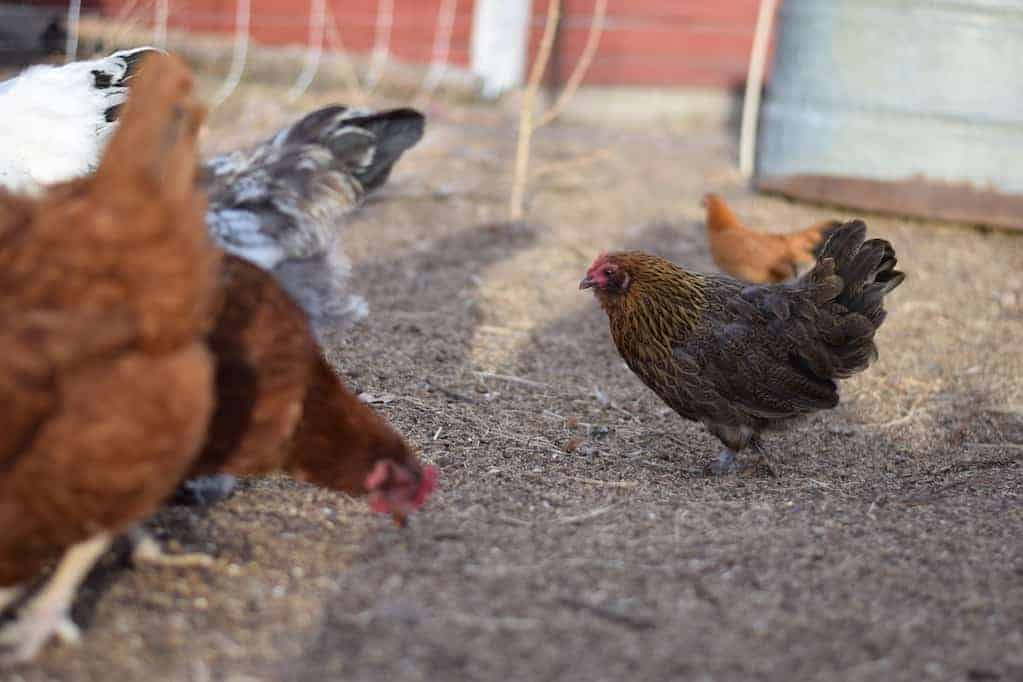
Benefits of all:
#1 Eggs! Nothing beats farm fresh, organic eggs.
#2 Egg shells are full of calcium. I save them, crush them up and add to my garden or feed them back to my fowl. Great pest control!
#3 They provide you with great fertilizer.
#4 They all are entertaining!
#5 They are great introductory animals to your homestead and easy for children to learn basics of animal care and upkeep.
Want more info on the differences between keeping chickens and ducks, check this post out!
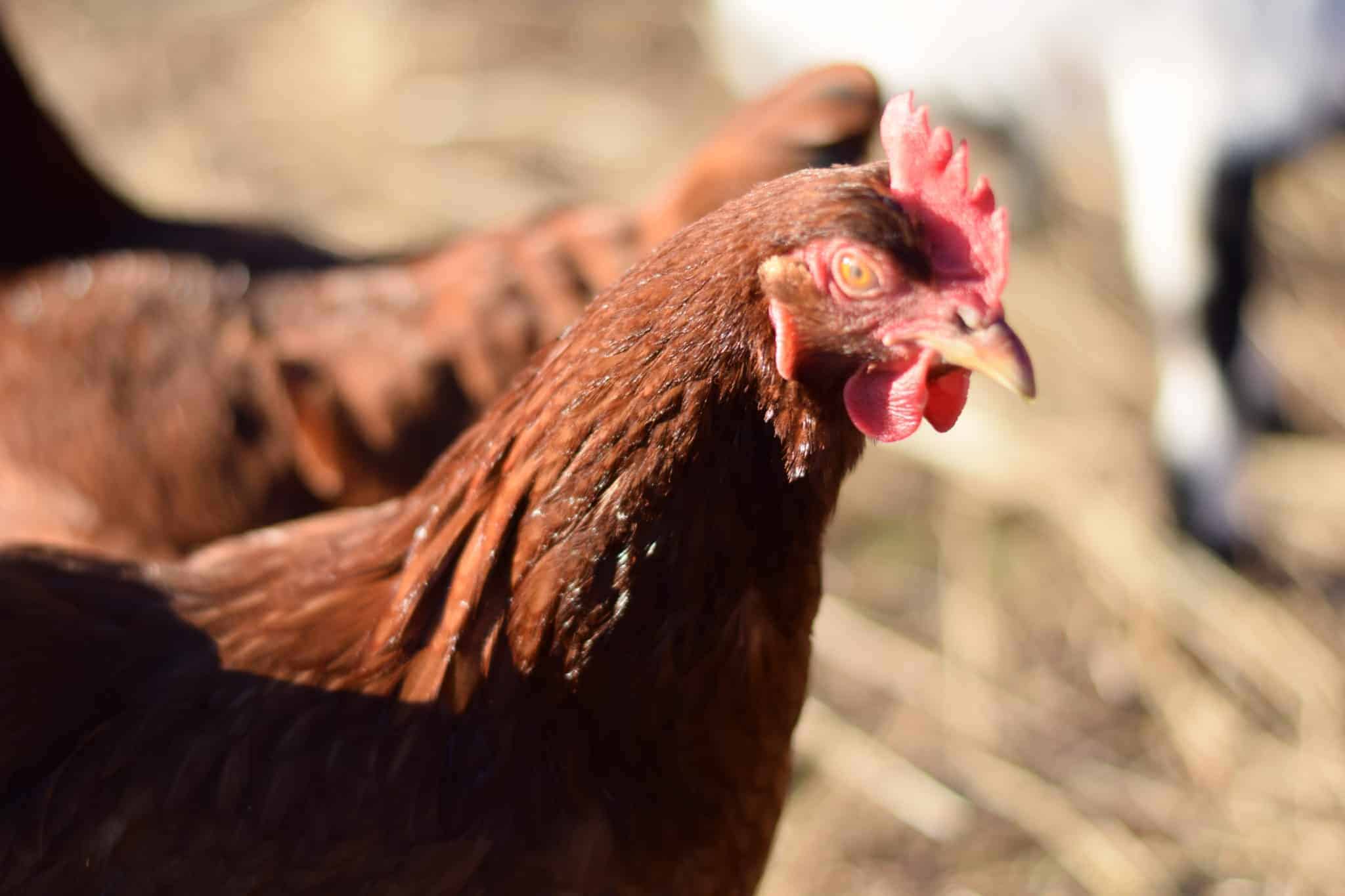

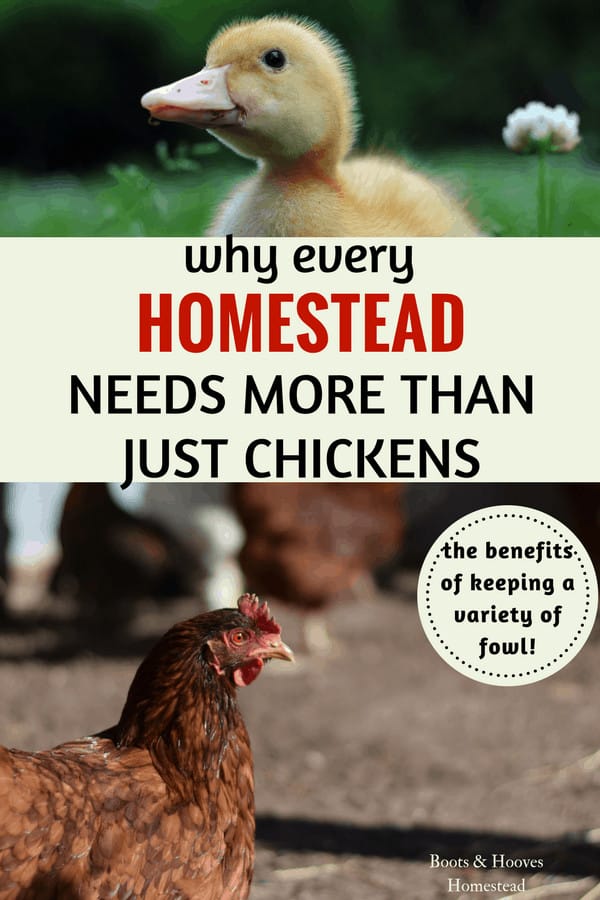
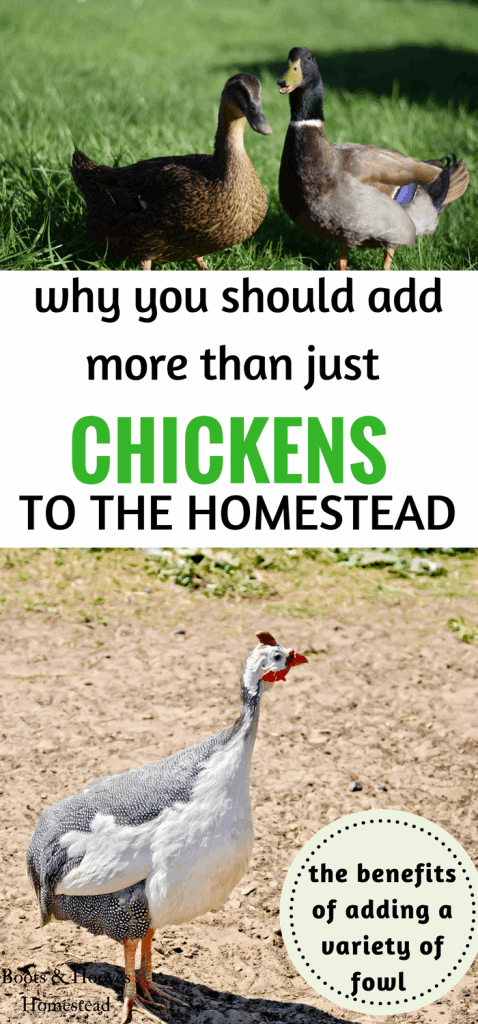
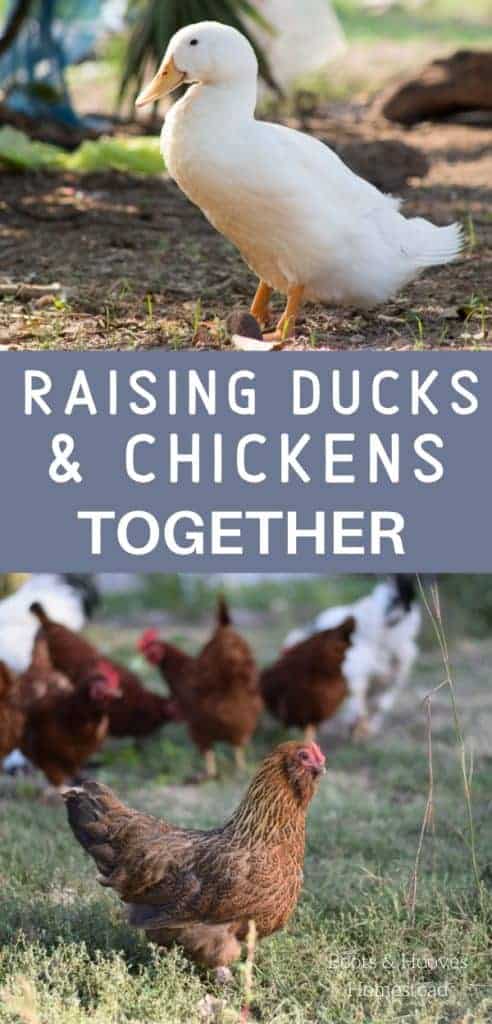
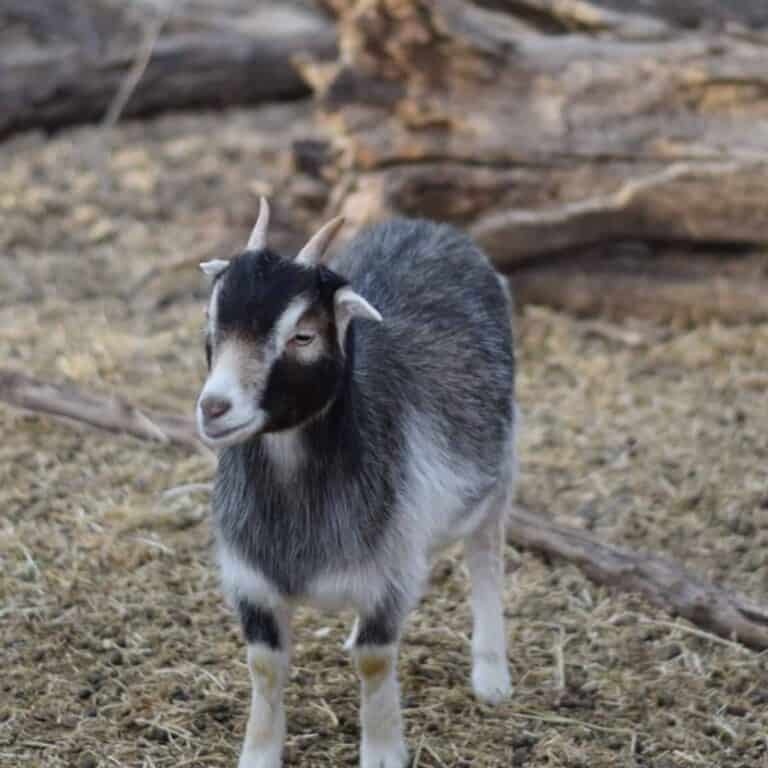


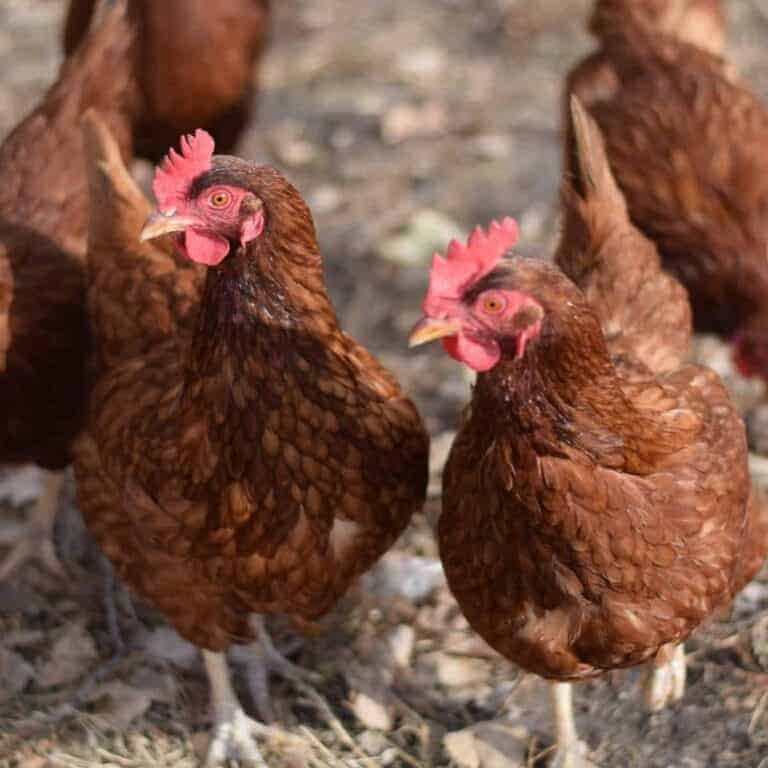
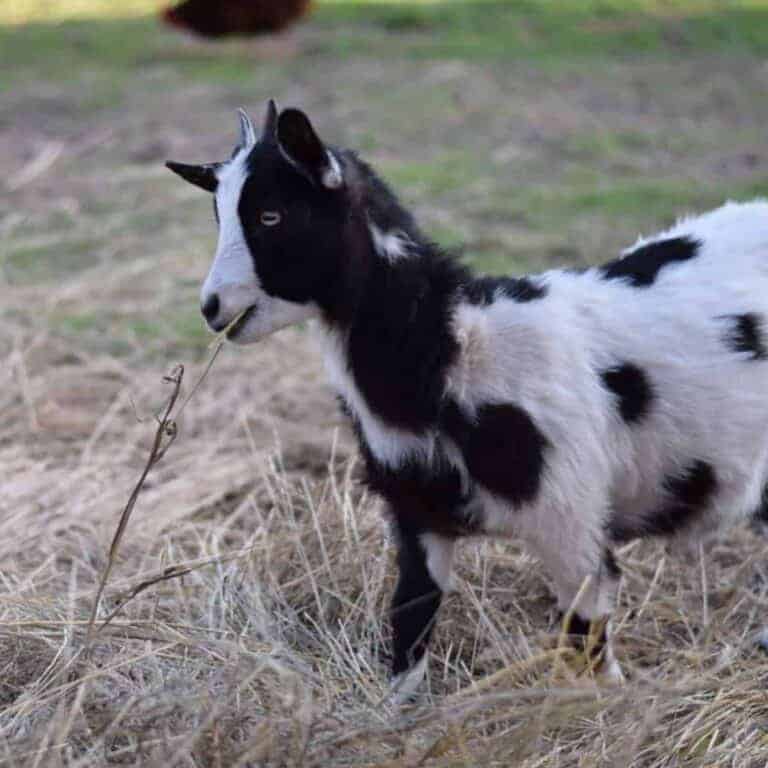

Guinea hens are also great at keeping snakes away.
And they are tick-eating machines!